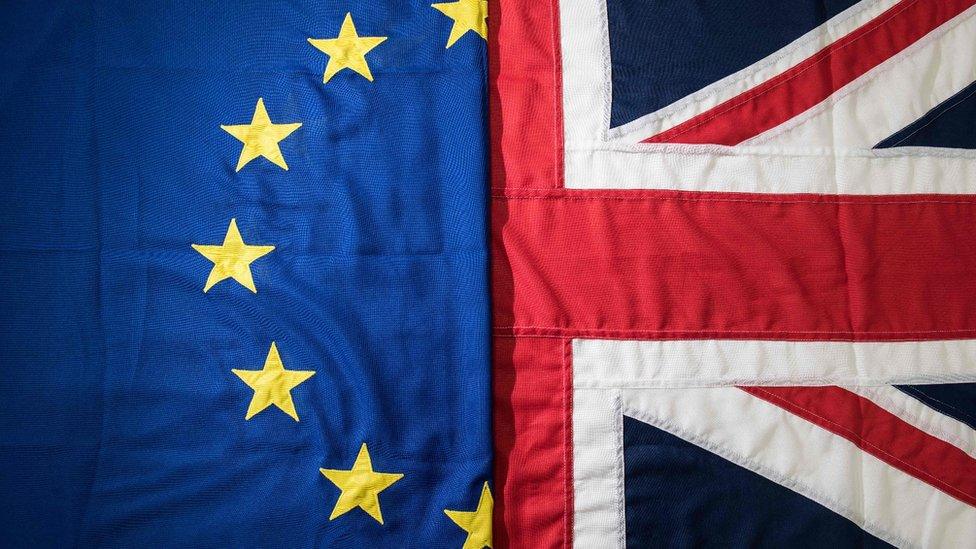Brexit: Your questions answered by Katya Adler
- Published
- comments
WATCH: BBC Europe expert Katya Adler answers your questions
Brexit is one of the biggest issues the UK has faced for a long time.
Leaving the European Union is also one of the most uncertain issues, with loads of people on each side having lots of different views about how it will affect all of us.
The language that is used is really complicated and it can be difficult to get explanations on what everything means.
So we asked you for the questions you wanted answers to, and then we took them to the BBC's Europe expert Katya Adler to get answers.
You can try our quiz now, or read this article and come back when you've got all the facts you need to ace it!
Your questions answered
1. Question from Emma - Would Brexit affect our generation?
Katya Adler: Brexit definitely affects you and your friends because it's about your future and the future of your country. You might one day want to go to study in a European university such as in Germany or France. But we don't know if it will be possible after Brexit because the rules and regulations haven't been decided yet. It all depends on the deal that's done between the UK government and the European Union.
2. Question from Ben - What was the point of joining the EU in the first place if we're leaving it now?
Katya Adler: Not everyone in the UK wanted to join the EU when they did back in the 1970s, but at the time the British government thought it was a good idea. The UK wasn't doing very well economically so the government thought it would do better as part of a bigger, richer European Union. So when we held a referendum on whether to leave or not two years ago, those who didn't want to join in the first place voted yes to leave, but of course there are other people who would much prefer to stay.
3. Question from Umar - Will Brexit affect the football transfers?
Katya Adler: The Premier League want talent - some of that talent comes from the UK and some of it comes from abroad from places like France or Italy. Like any other business, the Premier League wants the best of the best working for it and that could get more difficult after Brexit.
4. Question from Thomas - How easy will it be for me to travel to Paris after Brexit and will I need a visa?
Katya Adler: It's possible that after Brexit you will need a visa to go to Paris in France - it's not very likely but it is part of the talks between the UK and the EU about what their future relationship is going to look like.
WATCH: Brexit - what do the words mean?
What is Brexit and why is it happening?
Let's start at the beginning - what does Brexit actually mean?
Brexit is a word you'll have heard a LOT of over the last two years. It's a made-up word to talk about BRitain EXITing the European Union - BREXIT.
The European Union (EU) is a club of countries in Europe that work closely together and do business together.
Brexit is happening because the British people decided in a vote in June 2016 that the UK should leave the EU.
More than 33 million adults voted. Around 52% of them chose to leave the group of 28 countries, while 48% wanted to stay in it.
The UK has been a member of the EU for more than 40 years, so this was an extremely important moment.
But lots of things still need to be worked out about how the UK and the EU will work together once the UK leaves.
Watch the story of the day
Why did people vote to leave?
There are lots of reasons why adults in the UK voted to leave the EU.
For example, some people believe that the European Union holds the UK back from doing business elsewhere around the world, they don't like that the UK has to follow rules that are voted on by other countries, and have to pay money into the EU spending pot.
Plus they feel the UK should have more control over who is allowed into the country and who isn't.
Other people think that being in the EU brings many benefits to the UK, but the referendum ended with the Leave side getting the most votes.
Will there be another referendum?
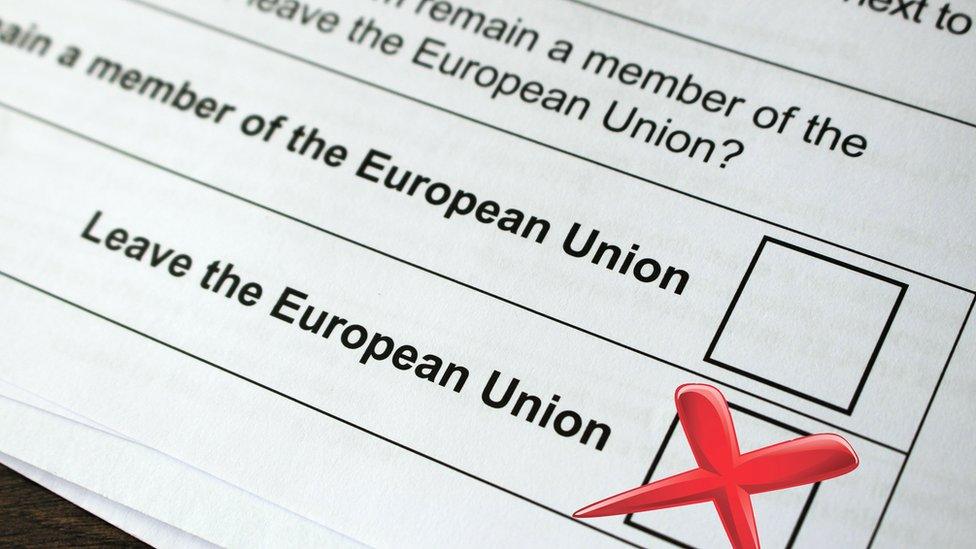
In 2016 adults in the UK voted for the UK to leave the European Union
Some people, senior politicians and groups have called for another referendum now depending on what deal Theresa May can strike with the EU.
They say that now people have more information about what Brexit might mean for the UK, there should be another vote.
Others say the result of the 2016 referendum should be respected and that voters have had their final say.
Prime Minister Theresa May has said she has no plans to call for another vote and the decision to leave is final.
The European Union in 60 seconds
What happens when the UK leaves?
The truth is we don't know yet.
That is what Prime Minister Theresa May is trying to work out with the leaders of the other European countries at the moment.
She has made a proposal to them that is being called the "Chequers" deal - that's because her plan was agreed at the Prime Minister's country house called Chequers.
However not everyone is happy with the plan and some of her most senior ministers resigned because they didn't agree with it.
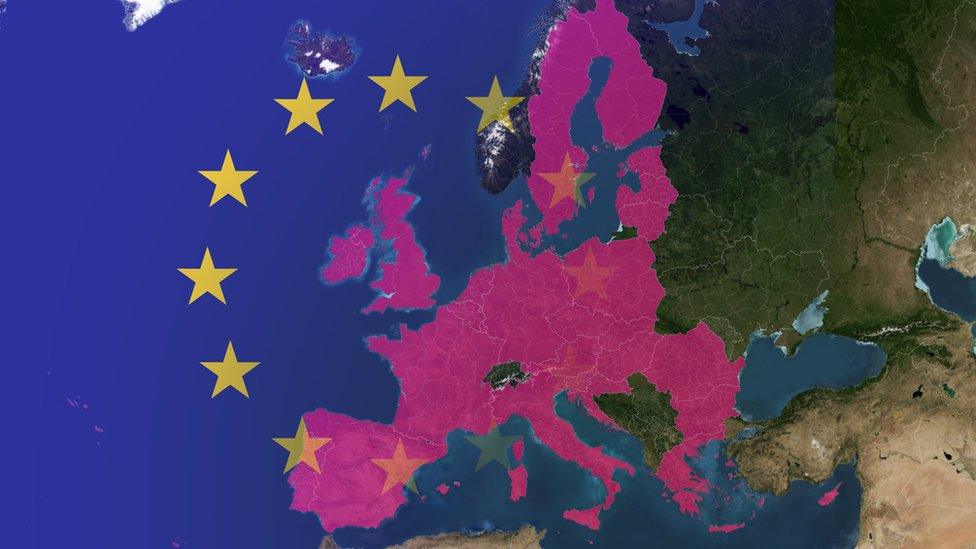
The pink area shows which countries are in the EU
In fact, lots of politicians - in all the main political parties - have very different views on what should happen next.
Whatever deal Theresa May does strike with the EU, there will be a vote on it in the UK Parliament.
How does the UK plan to leave?
There are two main parts to the UK leaving the EU:
A deal arranging for the UK to leave, and
A deal saying what the future relationship between the UK and the EU will be like
The UK is due to leave the European Union on 29 March 2019 and has to stick to EU laws until then.
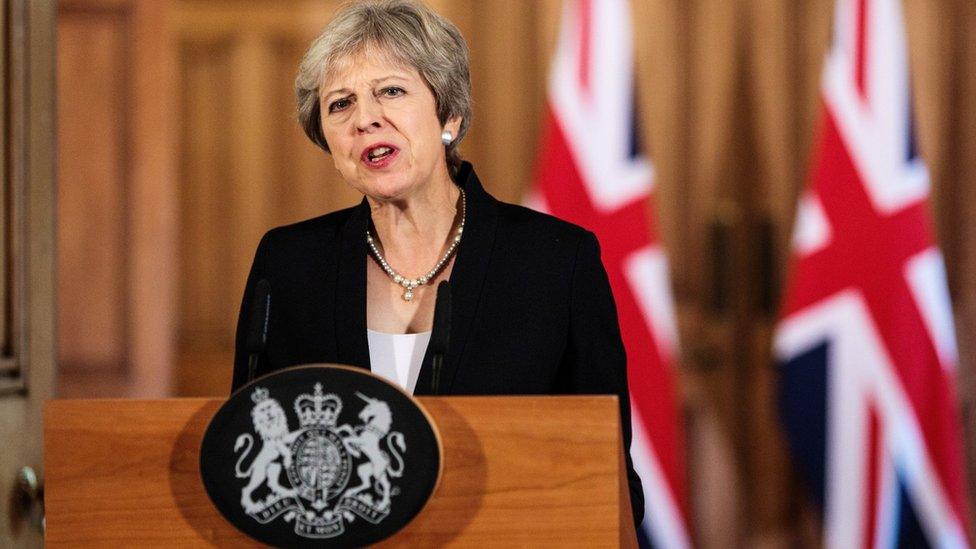
Theresa May says she wants to have agreed a deal to leave the EU, and to have a clear idea of the UK's future relationship with the EU, in time for that deadline.
If that happens, there would be 21 months of what is being a called a "transition period".
The UK government says the point of the "transition period" is to make it easier and smoother for people in the UK and the EU to prepare for any changes a new relationship would bring.
Why are people talking about Northern Ireland?
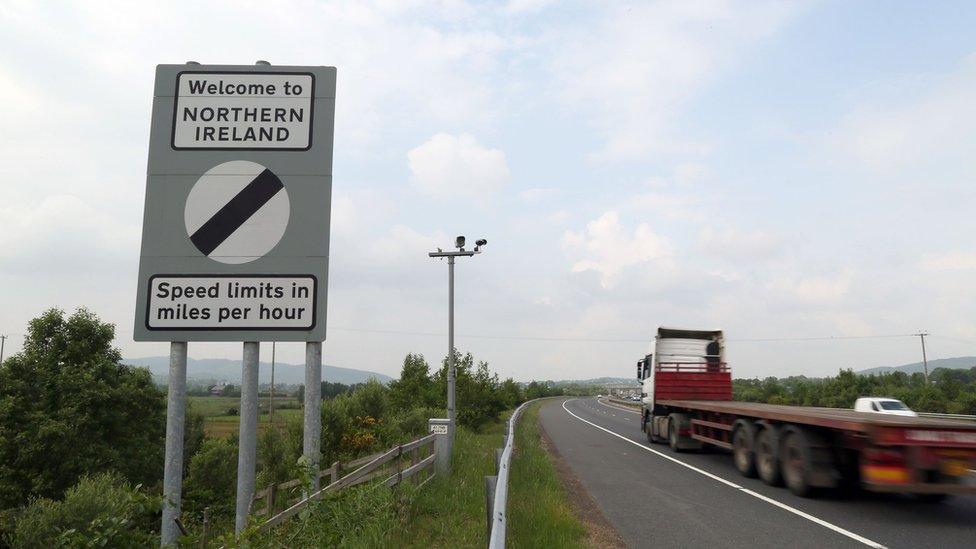
The situation with Northern Ireland is particularly complicated as it's the only part of the UK which shares a land border with an EU country - the Republic of Ireland.
A period of violence in Northern Ireland known as The Troubles was brought to an end by the Good Friday Agreement. Part of that deal involved removing the visible elements of the border between Northern Ireland and the Republic of Ireland - things like border guards and checkpoints.
So it's a very sensitive issue - both the UK government and the EU say they don't want to bring back those visible elements of the border.
Working out how to do that whilst also leaving the EU is proving a very difficult problem for both sides.
What about the EU?
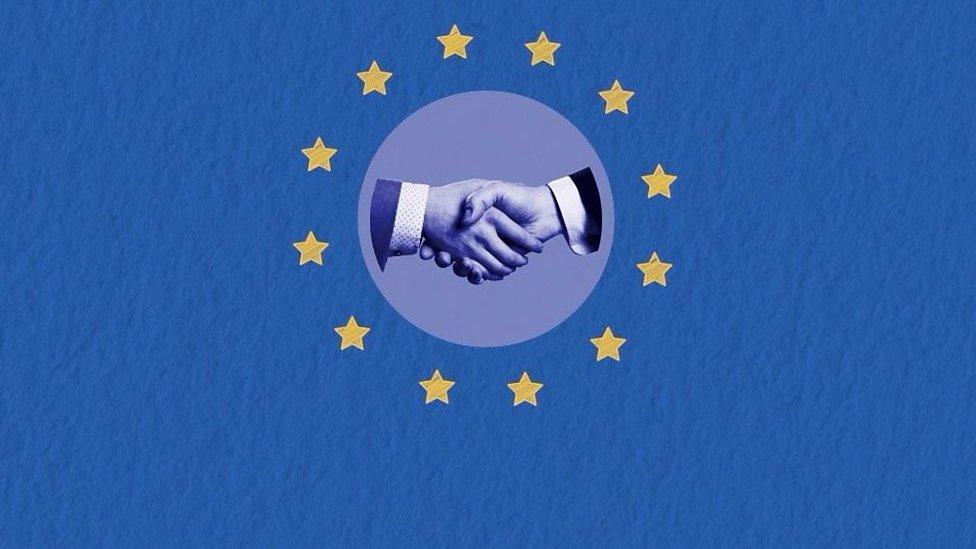
EU politicians have said they want to work out a deal with the UK but say there are lots of difficulties.
They have also said they don't want the UK to "cherry pick" a new deal - that means choose all their favourite bits from the EU and not take the bits they don't like.
Whatever deal the UK and the EU work out also has to be voted on by the European Parliament.
You are our friends, our neighbours... We want you to stay.
What about European citizens who live here?
That's one of the things that's being worked out in the discussions between the UK and the EU.
But the prime minister has tried to reassure EU citizens living in the UK that, in the event no deal can be reached "your rights will be protected".
When does it have to be done by?
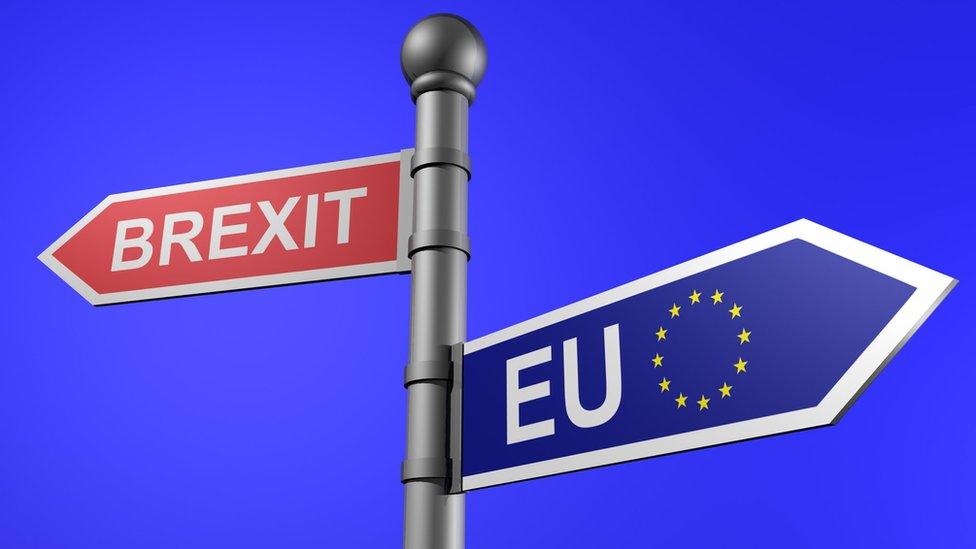
There have been lots of deadlines over the last few years, but the UK and the EU need to be ready for Brexit on 29 March 2019.
Any deal has to be agreed in time for it to be passed by both the EU and the UK Parliaments by that date.
- Published10 January 2019
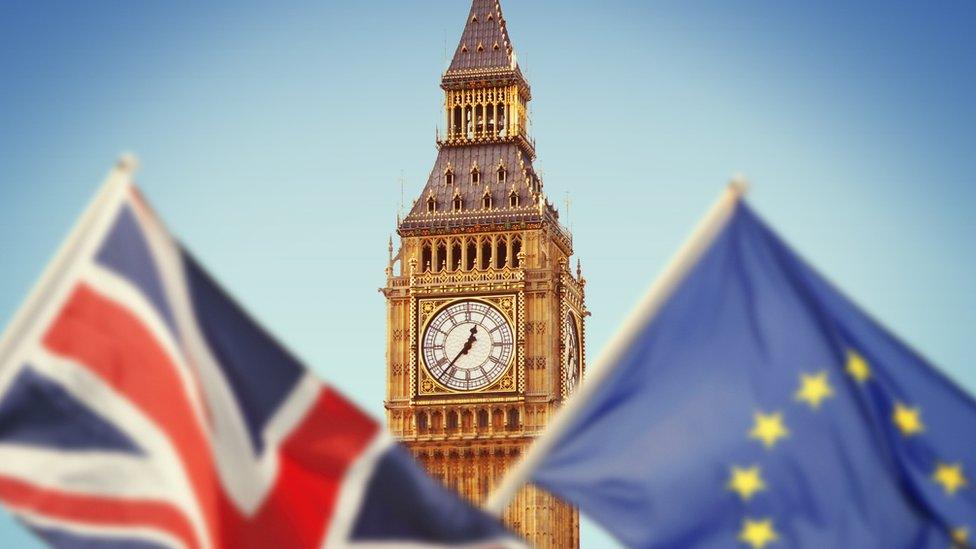
- Published21 September 2018
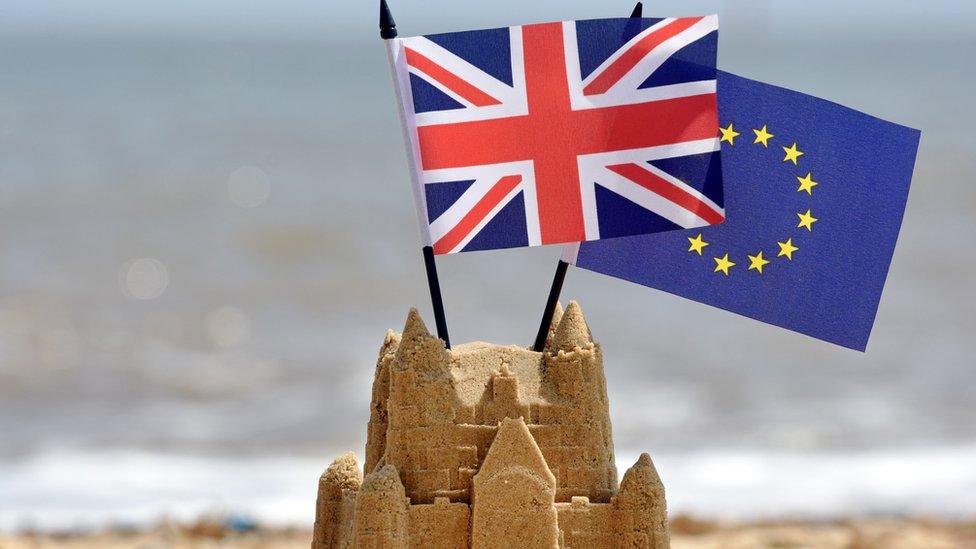
- Published17 September 2018
